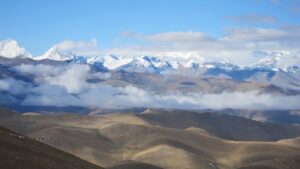FS 2.131
Integrated socioecological and ecohydrological modelling
This session is archived
Details
Full Title
FS 2.131: Integrated socioecological and ecohydrological modelling in mountain regionsScheduled
TBATBAConvener
Co-Convener(s)
Gaube, Veronika; Mehdi-Schulz, Bano; and Tappeiner, UlrikeAssigned to Synthesis Workshop
Thematic Focus
Socio-EcologyKeywords
Society-nature interaction, Sustainability, Mountain ecosystems, Eco-hydrology, Agent-based model
Description
Mountain regions are characterized by high variability and gradients, thus representing good model cases for studying society-nature interactions. Integrated socioecological models contribute to analyzing society-nature interaction – a core aspect of sustainability – by representing societal and ecological components at a similar level of complexity, ideally in a spatially explicit manner. This often requires the integration of different modelling strategies, e.g. an agent-based model capable of representing decisions of actors, system-dynamic stock-flow models to capture the dynamics of key biophysical dynamics (e.g. material or energy flows), and a distributed eco-hydrological model to capture the flow of water and nutrients in catchments. While some models may focus on socioeconomic or socioecological metabolism – the material and energy flows associated with societal activities -, others address biodiversity, C or N flows or other environmental issues. This session welcomes contributions from mountain areas around the world addressing a variety of themes in an integrated manner.


